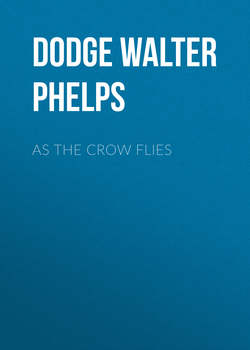As the Crow Flies

Реклама. ООО «ЛитРес», ИНН: 7719571260.
Оглавление
Dodge Walter Phelps. As the Crow Flies
INTRODUCTION
A GLIMPSE OF CORSICA
ALONG THE RIVIERA
SAN REMO
THE CITY OF PALACES
THE NAPOLEONIC LEGEND
A DEVONSHIRE MARKET TOWN
OXFORD – FROM A STUDENT’S NOTE BOOK
THE ENGLISH LITTORAL
A DAY AT WINDSOR
SCARBOROUGH
CLIMBING IN LAKELAND
WINDERMERE
SANDRINGHAM HOUSE
THE LATTER-DAY JACOBITES
Отрывок из книги
BASTIA. – Nice is too attractive to leave without regret at any time, and we felt particularly sorry for ourselves one evening towards six o’clock when we saw the disreputable little tub of a steamer that was to take us over to Corsica; and as we penetrated the odourous mysteries of the cabin we devoutly hoped that we might see Bastia in the morning without foundering, for the berths were suspiciously like the long, narrow coffin shelves in family vaults and had been built apparently for children, so cribbed, cabined and confined were their proportions. We said little as we put away our portmanteaux and cameras and took our rugs from the strap, but our looks spoke volumes and we were careful to sprinkle plenty of Keating’s powder about the place.
A fine, drizzling rain soon began and we were compelled, much to our disgust, to leave the comparatively unobjectionable deck where sturdy, bare-legged sailor boys were shouting and singing and throwing ropes and chains about to no apparent end. As soon as we had reached the depths of the noisome little cabin, dinner was served, and oh, the mockery of that dinner! Everything was scented with garlic, and when the flavour of that questionable delicacy was absent it was replaced by the taste of rancid oil. We did not sit the meal out, and although it was barely nine o’clock, threw ourselves on our shelves to try and forget the too perceptible motion as the little boat quitted the sheltering harbour of Nice. Although the sea was calm enough, the small size of the boat unconsciously suggested the idea of a rough sea.
.....
I have several times been asked what the principal industry of Bastia was. The only answer that occurs to me is to say stilettoes, for really all the shops seem to have inexhaustible supplies of this keen, murderous little blade. Not only are they sold in the guise of weapons, but as charms, as brooches, as sleeve buttons, as scarf pins – in coral, lava, gold, silver and brass. Even the pawnbrokers display second-hand stilettoes in their windows, several of them covered with a rust that has been blood. To a stranger, all this gives Bastia a savage air, and when he thinks of the hotels and the food he is apt to start for the station or the dock. But Vendetta is confined strictly to local affairs, and it is very rare to find a case where strangers have been brought into family feuds. The literature of Vendetta is rich. The famous “Corsican Brothers,” “Mr. Barnes of New York,” Marie Corelli’s “Vendetta,” and Prosper Merrimée’s delightful “Colomba” all dwell on the subject.
But besides Vendetta, which exists only in this island; Corsica shares with Sardinia the honour of being the only place in Europe where the moufflon is now found, and so attracts numbers of English sportsmen, who, however, land usually at Ajaccio. Few tourists reach Bastia. Ajaccio is a sort of health resort, modeled after the places on the Riviera and is only a second-rate imitation at best; but Bastia is a quiet, semi-commercial little town, on the sea, with huge mountains at its back, and content to dream away its time in ignorant obscurity. All traces of the old island costumes have disappeared and one does not know whether to be amused or sad at the pathetic attempt to imitate French fashions. The older streets in Bastia are curious. They differ from those of most old Italian towns in being paved with large, flat stones and are kept scrupulously clean, showing their French origin. The old citadel, built in 1383, is worth a visit for the sake of its curious walls. In poking about among the old curiosity shops I unearthed a valuable souvenir. It was an old bronze medal, bearing on one side “Louis Napoleon Bonaparte,” with his portrait, and on the other “Pour Valeur.” It had evidently been given as a reward of valor by Napoleon III. in the eventful two years when he was Prince-President, before the coup d’état, and I have since ascertained its rarity. A drive in the country about Bastia shows a landscape rich in hills and pines, but in nothing else.
.....